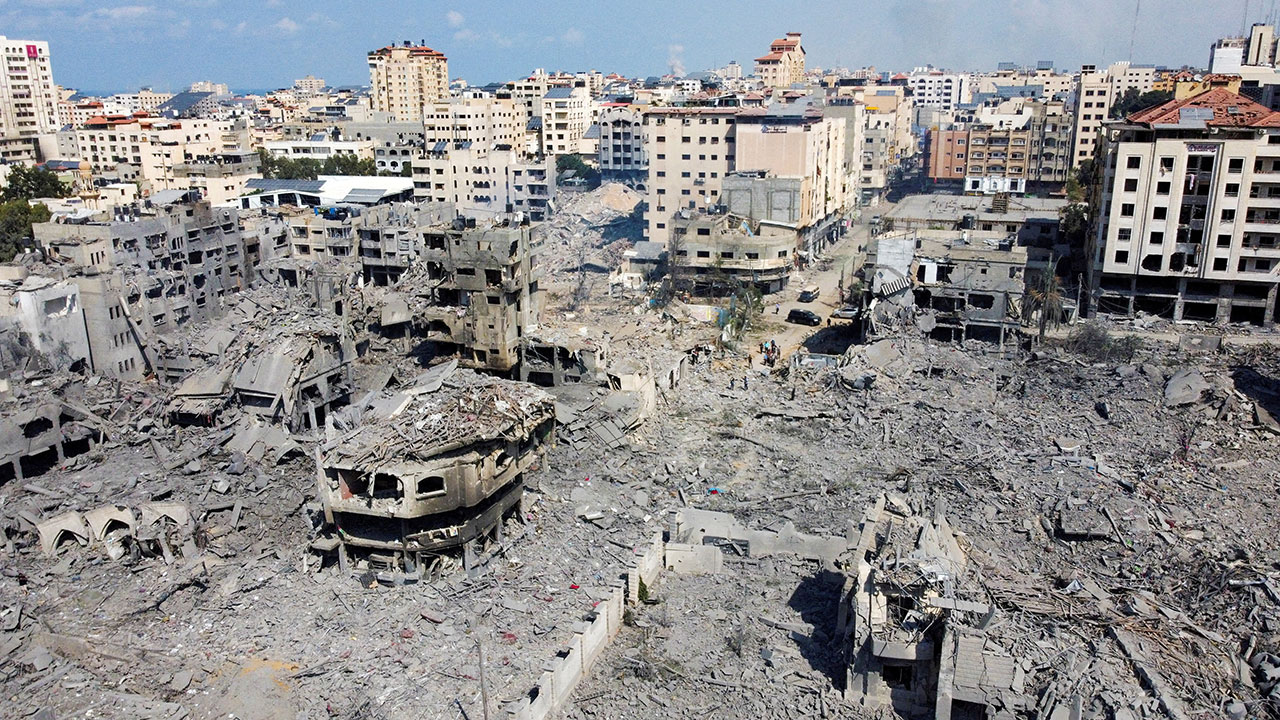Philippines asks Egypt to let Filipinos pass through Rafah border with Israel

By John Victor D. Ordoñez and Beatriz Marie D. Cruz, Reporters
THE PHILIPPINES on Monday asked Egypt to allow Filipinos and other foreigners caught in the crossfire between Israeli and Palestinian Islamists to pass through the Rafah Border Crossing so they could return to their homelands.
“DFA is hopeful for a solution to be reached soonest in order for the Rafah crossing to start receiving foreign nationals, so that our countrymen in Gaza will be allowed to cross into Egypt,” its Department of Foreign Affairs (DFA) said in a statement.
“From there, our teams will work on their repatriation to the Philippines.”
DFA on Sunday placed Gaza under Alert Level 4, forcing Filipinos to evacuate and come home amid the worsening war.
There were 131 Filipinos in Gaza, with at least 78 of them waiting near the Rafah Border Crossing to move into Egypt, Foreign Affairs Undersecretary Eduardo Jose A. de Vega said on Sunday.
Only about half of them are actually Filipino nationals, the rest being children with their Palestinian spouses, he said.
Hamas militants backed by a barrage of rockets stormed from the blockaded Gaza Strip into nearby Israeli towns, killing dozens in a surprise attack on Oct. 7.
A stunned Israel launched airstrikes in Gaza, with its prime minister Benjamin Netanyahu vowing to inflict an “unprecedented price.”
The Department of Migrant Workers (DMW) said about 388 of the more than 30,000 Filipinos in Israel have sought help from the agency.
Migrant Workers officer-in-charge (OIC) Hans Leo J. Cacdac told the ABS-CBN News Channel 385 of them have been accounted for.
“We are hoping and praying that with the help of the Israel Defense Forces and their employers, we’ll continue the search and find them,” he said.
Mr. Cacdac said 35 Filipinos had asked the DMW to help them come home, adding that repatriation would likely start this week.
He said Filipinos would be flown out of Israel through the Ben Gurion International Airport near Tel Aviv, which remained operational.
There was still no repatriation call for Filipinos in Israel, which was still under Alert Level 2, Mr. De Vega earlier said.
At least three Filipinos have died in the war, all of them caregivers, while three others remained missing, DFA said at the weekend.
Mr. Cacdac said DMW had reached out to the families of the three victims to express their sympathies.
The agency last week said 313 Filipinos had marked themselves safe.
About a third of Filipinos in Israel live in Tel Aviv, according to Overseas Workers Welfare Administration (OWWA) chief Arnell A. Ignacio.
A fifth live in the central district, 12% live in Israel’s third-largest city Haifa and 6.4% are from the northern district.
A tenth of the Filipinos live in the capital Jerusalem, while 5.3% live in the southern district, which is near Gaza.
Mr. Ignacio said 90% of Filipinos in Israel work as caregivers, 8% are permanent residents, 497 are student-interns and 19 are tourists.
“Over the years, Filipinos have found a home in Israel, they feel safe and secure which is why some of them did not request repatriation,” Mr. Cacdac said, noting that most of the Filipinos in Israel are caregivers.
Meanwhile, the Philippines could lose as much as $131 million (P7.4 billion) worth of money sent home by Overseas Filipino Workers (OFWs) in Israel amid the worsening conflict between Israeli forces and Hamas militants, Surigao del Sur Rep. Johnny T. Pimentel said in a statement.
“Our best estimate is that Filipino workers in Israel send to their families here in the Philippines around $131 million in cash transfers on an annual basis,” “The ballpark figure covers dollars coursed through banks as well as nonbank remittance channels.”



